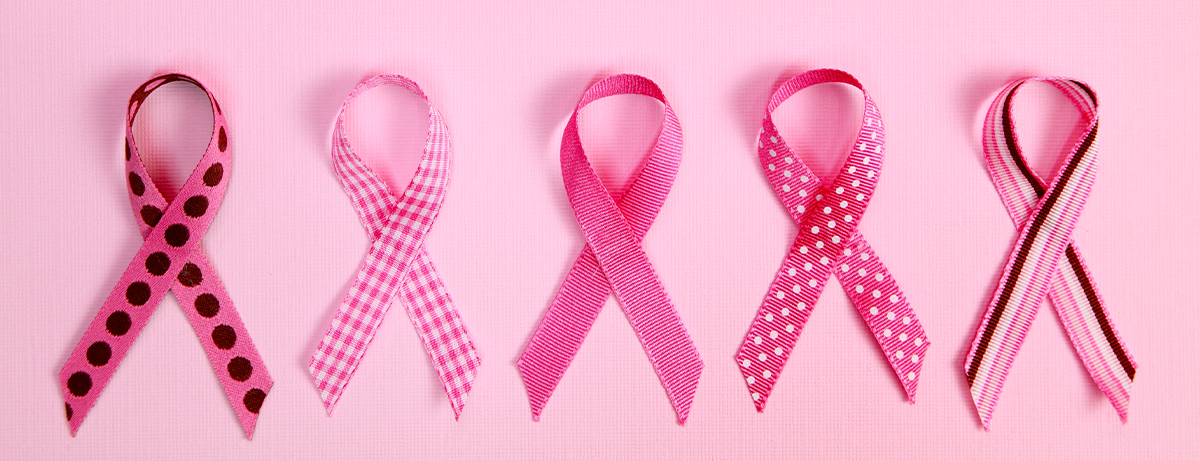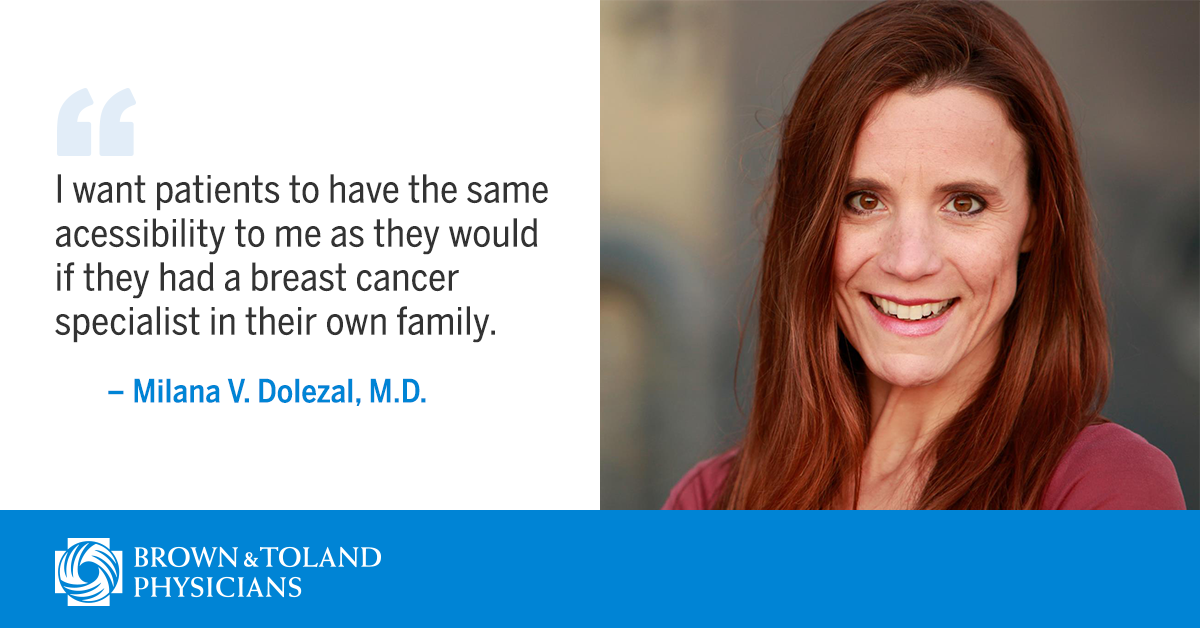Q&A: Dr. Milana Dolezal Discusses the Latest in Breast Cancer Prevention and Treatment

Brown & Toland physician Milana Dolezal, MD, MSci, is a board-certified oncologist and hematologist who treats women’s malignancies (breast and gynecologic cancers) and gastrointestinal (GI) cancers at Pacific Hematology and Oncology Associates in San Francisco. Dr. Dolezal also leads research enabling new approaches to the treatment of solid tumors and hematologic malignancies and cancer survivorship/supportive care.
Dr. Dolezal is also a former competitive triathlete/Ironman finisher. She is an avid cyclist who rode from Los Angeles to Washington, D.C. with the first Tour of Hope team to raise awareness about cancer clinical trials.

Q: What led you to a career involving breast oncology?
A: My grandmother, who helped raise me, was diagnosed with breast cancer when I was in high school. That experience — seeing her suffer and eventually pass away from metastatic breast cancer – spurred my passion in the field. It led me to conduct research at the National Cancer Institute (NCI) and National Institutes of Health (NIH) in college, followed by a three-year hematology/oncology fellowship at UCLA. Afterwards, I pursued a drug development fellowship at Genentech, followed by four years of directorship work on breast cancer phase 1-4 clinical trials.
Q: There has been some confusion recently regarding breast cancer screening guidelines. What is your advice?
A: For most women, beginning annual breast cancer screenings at age 40 is recommended. However, there are different surveillance guidelines for women whose family history includes breast or other kinds of cancers. We are also seeing a rising incidence of cancer in adults under the age of 50, particularly breast and colorectal cancers, so guidelines will likely move toward earlier screening. Early detection is key, of course — the sooner the diagnosis, the better chance for successful treatment.
Q: Why is it important to know your patient personally?
A: In addition to the importance of knowing patients’ family histories as they relate to screening and treatment, I feel so strongly about knowing – and treating — my patients like family. I know who lives in their home, their hobbies — even their dog’s name. When patients come to the office, they are seen by their oncologist, which doesn’t always happen in other practices. A patient can call at 2 a.m. and know that they will always get me or one of my oncology partners on the phone. I want patients to have the same accessibility to me as they would if they had a breast cancer specialist in their own family.
Q: What is a new innovation in breast cancer care?
A: Within the past year alone there has been an explosion in new therapies, particularly for breast cancers that have spread to other parts of the body. For example, women with HER2-positive metastatic breast cancer that has progressed, now have three more FDA-approved treatment options. One drug combination (tucatinib, trastuzumab and capecitabine) has showed statistically significant and meaningful improvements in slowing progression of cancer spread to the brain and extending survival. These kinds of “targeted therapies,” where drugs block the growth and spread of cancer by interfering with specific molecules, are currently the focus of much anticancer drug development.
Q: What is one question you wish more women would ask you?
A: I’ve always felt it’s important to treat the whole person, not just their cancer. This means being aware of any adverse treatment side effects and the impact they can have on quality of life. Getting to the bottom of these issues can lead to questions that may be difficult for some patients to ask.
A multidisciplinary cancer survivorship program that I initiated in the East Bay, and have continued in San Francisco, helps patients manage the physical and emotional changes that can come during and after cancer treatment, including changes to their sexual health. Seeing a need, I started a trial that centered on vaginal dryness and sexual function in cancer patients.
What I really want my patients to know is that there are no “stupid” questions. Be honest about all of your quality of life issues and don’t be embarrassed. Every question is fair game.
